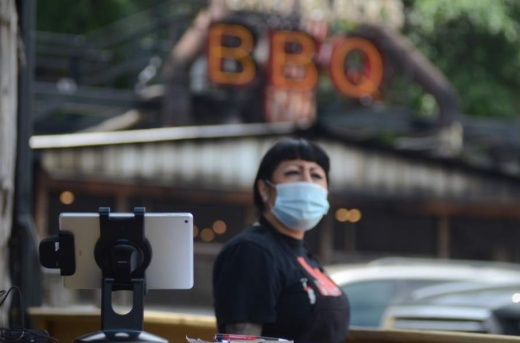The economic downturn began locally with the March 6 cancellation of South by Southwest Conference & Festivals, a crucial stimulus for small businesses, from retail shops to restaurants and music venues. The March 17 closure of dine-in service furthered the damage to restaurants, and the March 25 stay-home order, which is still active, stymied much of Austin’s remaining businesses. Although officials stand by the actions as crucial to slowing the spread of the highly contagious coronavirus, each decision proved more devastating to the local economy.
“Live music in Austin is dead,” Cody Cowan, who represents all the music venues in the Red River Cultural District as executive director of the Red River Merchants Association, told City Council May 7. “Under [coronavirus] closures, [music] venues were the first to go and will be the last to show.”
Under the new $18 million program created by City Council on May 7, the venues Cowan represents could receive critical assistance in weathering the pandemic’s storm. The program, which received unanimous support from City Council, creates three buckets of assistance packages: $11 million for the Commercial Loans for Economic Assistance and Recovery Fund, $1 million for the Childcare Support Fund and $6 million for the Austin Nonprofit & Civic Health Organizations Relief Fund. The city will seek nonprofits to effectively administer the $18 million.
These are the first local programs intended to be funded through the $170.8 million the city received through the federal coronavirus relief package.
District 6 Council Member Jimmy Flannigan, who led the programs’ creation, called it a “rapid prototype.” Flannigan said the intention is to take a small portion of the federal funding and see what the city’s nonprofits can do with it. Those that accomplish the most with their allocation will be shortlisted for additional funding.
The city will thoroughly monitor the program and how money is spent to collect data on need and efficiency. Flannigan, who expects a second and more devastating spike of the coronavirus, said this program will help get the ball rolling on building airtight programs and preparing for the next “three to six months.”
'An initial investment'
The $11 million allocated to the CLEAR Fund will be focused on small businesses and broken down into two buckets: $10 million for loans and grants related to business operations, and $1 million in grants to pay for any extra safety measures taken to comply with reopening orders.
Businesses that receive funds should offer commitments for employee retention, according to the City Council resolution. City Council members also want the money to focus on businesses that are especially vulnerable and may have not received any other assistance.
With the $1 million Childcare Support Fund, the city will help child care centers that serve families who receive child care subsidies. The money will go to affected centers that have “at least a 2-star rating under the Texas Rising Star system,” according to the resolution, have not received help through the federal Payroll Protection Plan and have virus mitigation needs.
The ANCHOR Fund’s $6 million will be funneled through five buckets focusing on the following areas:
- $2 million for health and human services;
- $1.25 million for workforce development and social/legal services;
- $1.25 million for education;
- $1 million for arts and culture; and
- $500,000 for environment and animals.
District 10 City Council Member Alison Alter, who co-sponsored the resolution and helped draft the ANCHOR Fund requirements, called the program an “initial investment” and said the city would continue to monitor spending to further understand how best to allocate aid dollars. She said the nonprofit sector will be crucial as the city transitions out of the coronavirus disaster.
Flannigan and Alter said transparency in how this money is spent will be key to mitigating waste. City Council pushed the city manager to work with the local Community Action Network and the Capital Area Council of Governments to develop a dashboard that not only monitors how each dollar is spend in these programs, but also how all money allocated to coronavirus aid is spent.
“It’s the only way you can ensure that you limit waste and fraud when you’re also trying to move quickly,” Flannigan said.





